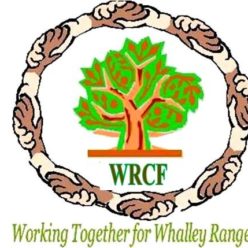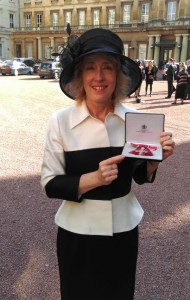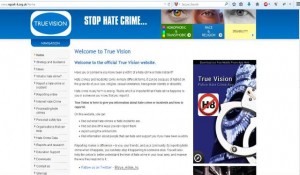uesday October 6 2015

It makes sense that more contact can cheer you up
“Low levels of face-to-face social contact ‘can double the risk of depression in older people’,” say The Daily Telegraph and the Daily Mail.
The papers are reporting on a new study that found over-50s who saw their family and friends at least three times a week were half as likely to develop depression as those who saw loved ones much less often.
Speaking on the phone or keeping in touch by email was no substitute for meeting up in person and had no protective effect on the risk of depression.
The study, which tracked over 11,000 people for more than two years, found people who saw family and friends just once every few months had an 11.5% chance of later developing symptoms of depression, compared with a risk of 6.5% for those who met up at least three times a week.
Interestingly, for people in their 50s and 60s social contact with friends seemed particularly important to ward off depression, while for those aged 70 and older frequent contact with children and other relatives was most beneficial.
The researchers pointed out, though, that frequent contact with friends and family was only helpful if it was harmonious. Visits marred by conflict were more likely to result in depression than no visits at all.
While the study supports the importance of face-to-face contact in preventing depression in older people, it doesn’t prove that low social contact directly causes depression. It could be, for instance, a person predisposed to depression is more likely to withdraw and avoid contact with loved ones.
Where did the story come from?
The study was carried out by researchers from the University of Michigan and Portland State University.
It was funded by the Robert Wood Johnson Foundation, the Department of Veterans Affairs, and the Veterans Affairs Portland Health Care System.
The study was published in the peer-reviewed Journal of the American Geriatric Society.
In general, this study was reported accurately in the UK media, with The Telegraph correctly pointing out that the findings do not prove lack of face-to-face contact caused the increased risk of depression.
What kind of research was this?
This research was a population-based observational study that used information gathered over time from regular questionnaires and interviews. The study looked at the link between different types of social contact with friends or family and the risk of subsequently developing depression symptoms.
The longitudinal study design is good for following large numbers of people over time to observe the development of outcomes. However, unlike a randomised controlled trial, it can’t prove one factor directly causes another.
What did the research involve?
This study used data from the Health and Retirement Survey (HRS), a longitudinal cohort study of older adults in the US (aged 50 or over) between 2004 and 2010, to assess links between different types of social contact with family members and friends, and the subsequent risk of depressive symptoms.
The researchers were interested in three types of social contact – in person, via telephone, and written (including email).
Participants were asked whether their social contact with children, family (other than children) and friends was once or twice a week, once or twice a month, every few months, once or twice a year, less than once a year, or never.
The frequency of an individual’s use of the three types of social contact with children, other family members and friends at baseline were used to predict depressive symptoms two years later.
Depression was assessed using the eight-item Centre for Epidemiologic Studies Depression Scale during a face-to-face interview. People were categorised as having depression if they had four or more symptoms on this scale.
Social contact was measured by the self-administered Leave-Behind Questionnaire conducted in a random sample of the HRS and contains measures of social contact.
What were the basic results?
The risk of depression in the 11,065 people in the study increased as the frequency of face-to-face contact with loved ones decreased.
Those who saw friends and family at least three times a week had a 6.5% risk of depression two years later, compared with 11.5% for those who only saw friends and family every few months.
Despite telephone contact being the most popular form of social contact in the study, the frequency of telephone calls – along with written or email contact – didn’t seem to make any difference to the likelihood of developing depressive symptoms.
Social contact with friends seemed most beneficial for people in their 50s and 60s, compared with children and family for people in their 70s and older.
The researchers speculated that relationships with family members are most relevant when people are bringing up their families (younger than 50) and in retirement (over 70), whereas relationships with friends are most relevant between those ages.
How did the researchers interpret the results?
The researchers concluded that the frequency of personal contact with friends and family independently predicts the risk of subsequent depression in older people.
Doctors should therefore consider “encouraging face-to-face social interactions as a preventive strategy for depression,” they say.
Conclusion
This study assessed the association between different forms of social contact with family and friends, and the subsequent risk of developing depression symptoms in adults over the age of 50.
It found infrequent face-to-face social contact was associated with a higher risk of depression symptoms after two years. Frequency of telephone, written or email contact had no effect.
However, the study still can’t prove low social contact directly causes depression, and some limitations should be taken into account. It could be the characteristics of the person at baseline – such as their personality and underlying physical and mental health – could influence both how much social contact they have and their subsequent risk of depression.
Another limitation of the study is it looked at a sample of older adults in the US who may not be representative of people in the UK. There were also a lot of people in the survey who couldn’t be included in this research because of lack of available data on social contact or depression score, and this may have altered findings.
Depression in older adults often occurs alongside other illnesses – for example, dementia, cancer, heart disease or physical disabilities. If you’re concerned that you or a friend or family member is feeling depressed or socially isolated, find local depression services or contact a GP for advice.




 It makes sense that more contact can cheer you up
It makes sense that more contact can cheer you up



